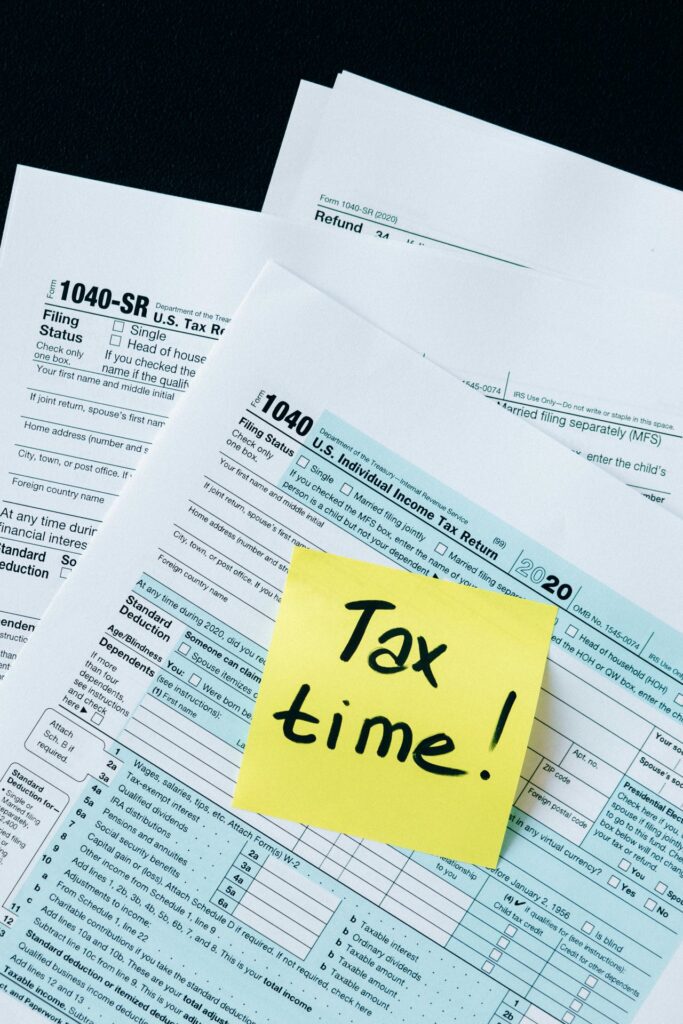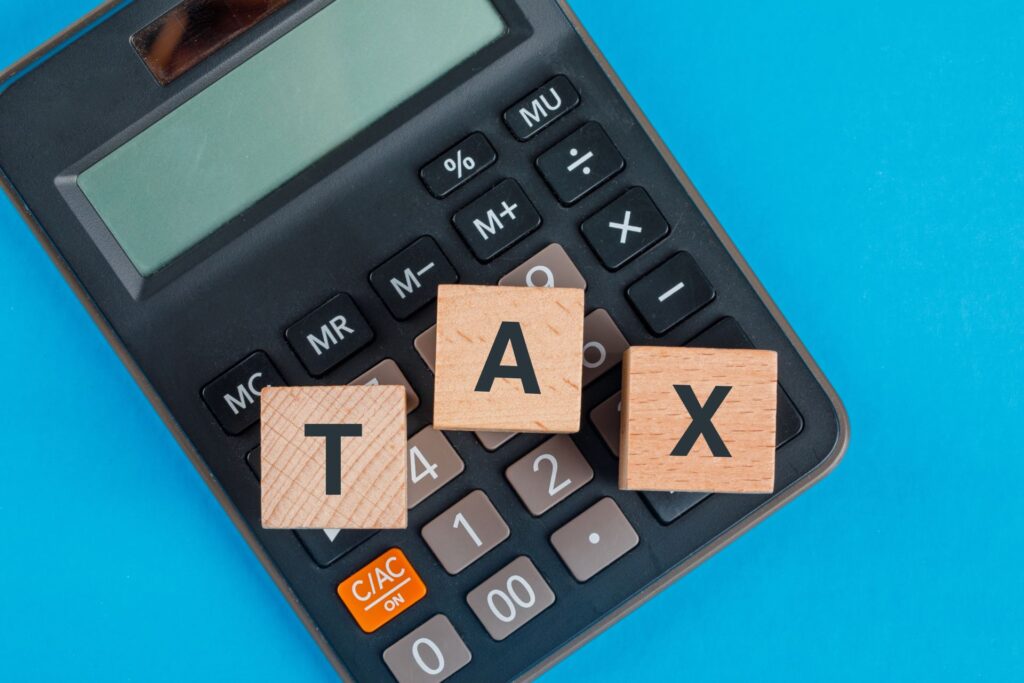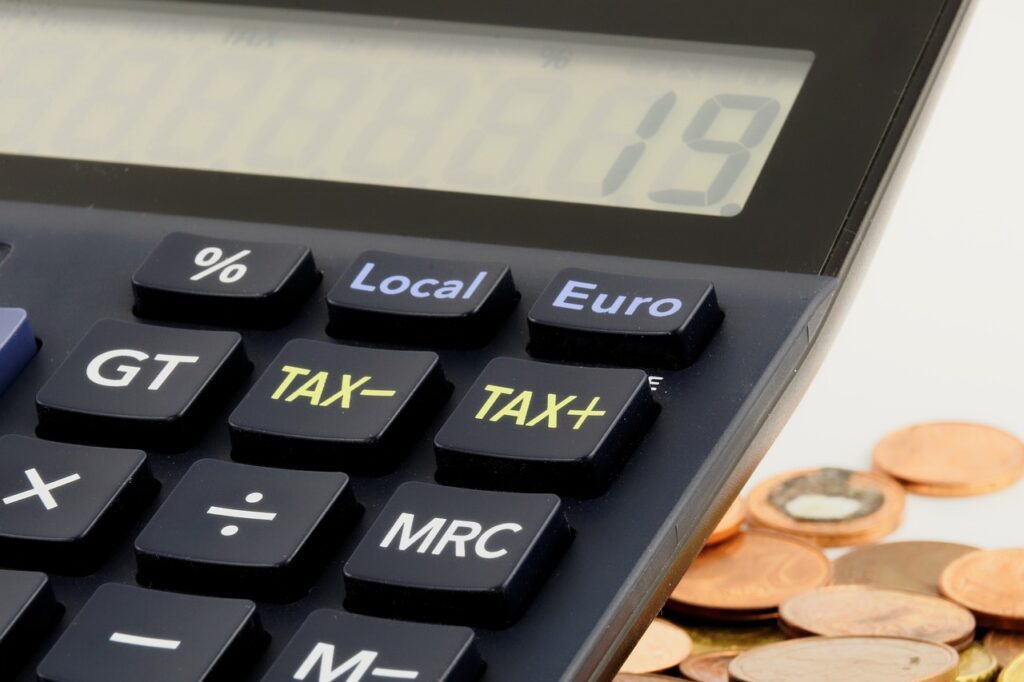Owning a villa in the tropical paradise of Koh Samui is a dream for many—imagine waking up to the sound of waves lapping at the shore and the scent of salt in the air. For those looking to make the most of their investment, renting it out can provide a lucrative source of income while sharing the beauty of this stunning location with others. However, before diving into the rental market, it’s crucial to understand the tax implications associated with earning rental income.
Navigating the world of tax obligations can be daunting, but fear not—this comprehensive guide is here to help. We will explore the various tax responsibilities for property owners in Koh Samui, covering everything from allowable deductions to necessary permits. By understanding these practical and legal aspects of renting out your villa, you can maximize your profits and enjoy the benefits of this beautiful island while ensuring compliance with local regulations. Let’s embark on this journey to make your rental experience as rewarding as possible!
Understanding Rental Income Tax
Rental income is considered taxable income in Thailand, and as a villa owner, you must comply with local tax regulations. Understanding how rental income tax works is essential for ensuring that you meet your obligations while maximizing your profits. Familiarity with the tax framework will empower you to make informed decisions regarding your rental property and help you avoid potential pitfalls.
Definition of Rental Income
Rental income refers to the money you earn from leasing out your property, whether it’s a cozy villa or a luxurious beachfront retreat. This income can include payments made by tenants for both short-term rentals, such as vacation stays, and long-term leases, typically spanning several months or years. It’s important to note that all forms of rental income are subject to taxation. Failing to report this income can lead to significant penalties and legal issues, potentially undermining the financial benefits of renting out your villa.
Being diligent about tracking your rental income is crucial. Keep detailed records of all payments received, including any deposits or fees, to ensure you have a comprehensive overview of your earnings. This practice will not only simplify tax reporting but also help you manage your finances more effectively.
Tax Rates on Rental Income
In Thailand, the tax rate on rental income varies depending on the ownership structure and the total amount of income earned. For non-residents, rental income may be subject to a flat withholding tax rate of 30% on gross income. This means that a portion of your earnings will be withheld for tax purposes before you receive your rental income.
Residents of Thailand have different tax rates that apply based on their total income. For individuals, rental income is typically taxed under the personal income tax regime, which features progressive tax rates ranging from 0% to 35%. The specific rate applied to your rental income will depend on your total taxable income for the year, including any other sources of income you may have.
It’s advisable to consult with a local tax professional who can provide guidance tailored to your specific situation. They can help you understand the applicable rates and ensure that you are compliant with local tax laws, maximizing your profits while minimizing your tax liability.
Understanding these tax obligations is key to enjoying the financial benefits of renting out your villa in Koh Samui without facing unnecessary complications.

Tax Deductions for Rental Expenses
One of the significant advantages of renting out your villa in Koh Samui is the ability to deduct certain expenses from your taxable rental income. Understanding what qualifies as a deductible expense can help you minimize your tax liability and maximize your profits. Knowing which expenses you can deduct will not only lighten your tax burden but also make your rental investment more financially viable.
Common Deductible Expenses
Several expenses associated with managing your rental property may be deductible, including:
- Property Management Fees:
If you hire a property management company to handle the day-to-day operations of your rental, such as tenant placement, maintenance, and rent collection, these fees can be deducted from your rental income. This is especially beneficial for owners who do not reside in Koh Samui, as a property management company can ensure that your investment is well-maintained and profitable. - Maintenance and Repairs:
Costs incurred for regular maintenance and necessary repairs to keep the property in good condition can also be deducted. This includes expenses for routine upkeep, such as landscaping and cleaning, as well as urgent repairs like fixing plumbing issues or replacing broken appliances. Keeping your villa in excellent condition can not only enhance tenant satisfaction but also contribute to higher rental rates. - Utilities:
If you pay for utilities such as electricity, water, or internet for your tenants, these costs may be deductible. Many landlords choose to include these utilities in their rental agreements, making the property more attractive to potential renters. Deducing these expenses can significantly lower your taxable income and improve your cash flow. - Insurance Premiums:
Premiums paid for property insurance are typically considered deductible expenses. Having adequate insurance coverage is essential for protecting your investment from unforeseen events such as natural disasters, theft, or liability claims. The costs associated with this coverage can help reduce your overall tax burden. - Depreciation:
You may also be able to claim depreciation on the property, which allows you to deduct a portion of the property’s value over time. This non-cash expense can significantly reduce your taxable income, making it an essential aspect of tax planning for property owners. Understanding how to calculate depreciation based on the property’s cost and useful life will help you take full advantage of this deduction.
It’s essential to keep detailed records of all expenses related to your rental property to substantiate your deductions when filing your taxes. Organizing your financial documents and invoices will facilitate a smoother tax filing process and ensure that you maximize your deductions without encountering issues with tax authorities.
Record-Keeping Requirements
Maintaining thorough and accurate records is crucial for claiming deductions and complying with tax regulations. You should keep copies of invoices, receipts, and any relevant financial documents related to your rental property. A well-organized system will make tax filing easier and help you avoid potential disputes with tax authorities.
Consider using digital accounting software to track your rental income and expenses efficiently. Many programs allow you to categorize expenses and generate reports, making it easier to prepare your annual tax return. Additionally, storing documents electronically reduces the risk of losing important paperwork and provides quick access when needed.
Regularly updating your records and organizing them by category (e.g., maintenance, utilities, insurance) will streamline the process when tax season arrives. By establishing a disciplined approach to record-keeping, you can ensure that you are well-prepared to claim all allowable deductions, ultimately enhancing the profitability of your rental property in Koh Samui.

Filing Your Taxes in Thailand
Filing your taxes in Thailand involves several steps that you must follow to ensure compliance with local regulations. Understanding this process can help you navigate your tax obligations smoothly and avoid potential penalties or complications. For villa owners in Koh Samui, staying organized and informed about tax filing requirements is crucial to maximizing rental income while ensuring compliance with Thai tax laws.
Tax Identification Number (TIN)
Before you can file your taxes, you will need to obtain a Tax Identification Number (TIN). This unique number is essential for all tax-related activities in Thailand and is specifically required when reporting your rental income. If you are a resident of Thailand, you can typically apply for a TIN through the local tax office.
For non-residents, the process may be slightly different, and you may need to provide additional documentation to verify your identity and residency status. It’s advisable to initiate this process early to avoid delays in your tax filing. Once you have your TIN, you will be able to conduct various tax-related transactions, including submitting tax returns and making payments.
Annual Tax Returns
In Thailand, property owners are required to file an annual tax return to report their rental income. The tax year in Thailand runs from January 1 to December 31, and you must submit your tax return by the end of March of the following year. This deadline is crucial, as late submissions can result in penalties and interest on unpaid taxes.
When filing your return, you will need to report your total rental income and claim any applicable deductions. Be prepared to provide documentation that supports your income and expenses, such as rental agreements, invoices for repairs and maintenance, and receipts for utilities. This information will help you accurately calculate your tax liability.
If you are unsure about the filing process, consulting with a tax professional who specializes in Thai tax law can provide clarity and ensure compliance with local regulations. They can help you understand the intricacies of the tax system and ensure that you take advantage of all allowable deductions, ultimately maximizing your net rental income.
In summary, understanding the steps involved in filing your taxes in Thailand is essential for villa owners in Koh Samui. From obtaining a TIN to submitting annual tax returns, being organized and informed will help you navigate your tax obligations effectively, allowing you to focus on enjoying the benefits of your rental property.

Special Considerations for Foreign Owners
If you are a foreign owner renting out your villa in Koh Samui, there are additional considerations regarding taxes that you should keep in mind. Understanding these special factors is crucial to ensuring compliance and optimizing your rental income.
Double Taxation Agreements (DTA)
Thailand has entered into Double Taxation Agreements (DTA) with several countries to prevent double taxation on income earned in Thailand. This means that if your home country has a DTA with Thailand, you may be eligible for tax relief or exemptions on your rental income. These agreements are designed to ensure that you are not taxed on the same income in both Thailand and your country of residence.
It’s essential to check the specifics of the agreement between Thailand and your home country to understand how it applies to your situation. Some agreements may allow you to pay taxes only in Thailand, while others might provide a credit for taxes paid in Thailand against your tax liability in your home country. Consulting with a tax professional familiar with international taxation can provide clarity on your obligations and help you take advantage of any benefits offered by the DTA.
Currency Considerations
When dealing with rental income, it’s important to consider the implications of currency exchange rates. Rental payments may be received in Thai Baht or other currencies, depending on the terms of your rental agreements. Fluctuations in exchange rates can significantly affect the amount of taxable income reported, especially if you convert your earnings to another currency.
For instance, if you receive rental payments in a foreign currency, you will need to convert this amount to Thai Baht for reporting purposes. This can introduce complications, as exchange rates can change frequently, impacting your reported income. Keeping detailed records of all transactions, including dates and conversion rates, will help ensure accuracy when filing your taxes.
Moreover, it’s advisable to consult with a financial advisor or accountant who is well-versed in both Thai tax laws and currency exchange matters. They can guide you in maintaining proper records and ensuring that you’re accurately reporting your income, regardless of currency fluctuations.
In summary, being a foreign owner in Koh Samui requires careful attention to specific tax considerations, including Double Taxation Agreements and currency implications. By staying informed and seeking professional advice, you can effectively navigate the complexities of taxation on rental income and ensure compliance with local regulations while maximizing your profits.
Connecting Hevearent to Your Rental Journey in Koh Samui
At Hevearent, we understand that renting out your villa in Koh Samui is more than just a financial transaction; it’s about creating memorable experiences for your guests while maximizing your investment. Our commitment is to support you in navigating the complexities of the rental market, including the important tax implications associated with rental income.
Expertise in Rental Management
With our extensive knowledge of the local market, Hevearent provides invaluable insights into the best practices for managing your rental property. We help you understand the intricacies of tax rates, available deductions, and the necessary filing requirements, ensuring that you comply with local regulations. By working with us, you can confidently manage your rental income while focusing on providing an exceptional experience for your guests.
Comprehensive Support for Property Owners
Hevearent offers comprehensive support tailored specifically for villa owners looking to rent their properties. We can guide you through the process of preparing your villa for rental, including marketing strategies, setting competitive rental rates, and managing bookings. Additionally, our team is well-versed in the nuances of local tax regulations, helping you stay informed about your tax obligations and the potential benefits of deducting various expenses.
Streamlined Record-Keeping and Financial Management
We recognize that maintaining accurate financial records is crucial for claiming deductions and ensuring compliance with tax regulations. Hevearent provides tools and resources to help you keep detailed records of your rental income and expenses, making tax filing a hassle-free process. By using our services, you can focus on enhancing your property and maximizing your rental income without the stress of navigating tax complexities on your own.

Conclusion
Renting out your villa in Koh Samui can be a rewarding venture, providing not only a significant source of income but also an opportunity to share the beauty of your property with others. However, understanding the tax implications associated with rental income is crucial for compliance and long-term financial success.
By being aware of the applicable tax rates, available deductions, and filing requirements, you can navigate the complexities of the tax system with confidence. This knowledge empowers you to make informed decisions about your rental business and ensures that you meet your obligations without facing unexpected penalties.
Whether you are a resident or a foreign owner, it’s essential to stay informed about your tax responsibilities. This proactive approach will allow you to maximize your rental income while minimizing potential liabilities. Understanding aspects such as Double Taxation Agreements and currency considerations can further enhance your financial strategy.
With careful planning and a commitment to managing your tax obligations effectively, you can fully enjoy the benefits of beachfront living in Koh Samui. Embrace the opportunity to create lasting memories while ensuring that your rental venture remains profitable and compliant with local regulations.
FAQs
Rental income in Thailand is generally subject to different tax rates based on residency status. Non-residents face a flat withholding tax rate of 30% on gross rental income. In contrast, residents are taxed under the personal income tax regime, with progressive rates ranging from 0% to 35% depending on their total taxable income for the year. Understanding these rates is essential for proper financial planning and compliance.
Yes, property owners can deduct a variety of expenses related to their rental property. Common deductible expenses include property management fees, maintenance and repairs, utilities (like electricity and water), insurance premiums, and depreciation on the property. These deductions can significantly lower your taxable rental income, making it important to track and report these expenses accurately.
A Tax Identification Number (TIN) is essential for all tax-related activities in Thailand, including reporting rental income. To obtain a TIN, you must apply through your local tax office. The application process typically requires identification and proof of your tax status, so it’s best to gather all necessary documentation beforehand. Having a TIN is crucial for ensuring that you can legally report your income and comply with tax regulations.
The deadline for filing your annual tax return in Thailand is the end of March of the following year, covering the tax year from January 1 to December 31. This means that if you have rental income from the previous calendar year, you need to file your return by March 31. Adhering to this deadline is critical to avoid penalties and interest on unpaid taxes.
To ensure compliance with tax regulations and maximize your deductions, you should keep detailed records of all income and expenses related to your rental property. This includes invoices, receipts, bank statements, and any relevant financial documents. Maintaining a well-organized filing system will not only make tax season easier but also protect you in case of audits or inquiries from tax authorities.
A Double Taxation Agreement (DTA) is an agreement between Thailand and another country that aims to prevent double taxation on income earned in both jurisdictions. If your home country has a DTA with Thailand, you may be eligible for tax relief or exemptions on your rental income. It’s essential to understand the specifics of the agreement to ensure you benefit from any applicable tax relief and avoid being taxed twice on the same income.
Failing to report your rental income can lead to significant consequences, including penalties, fines, and potential legal complications. Tax authorities in Thailand are diligent about monitoring compliance, and failure to report income accurately can result in audits and increased scrutiny of your financial records. It is crucial to stay compliant with local tax regulations to avoid these risks.
Yes, foreign owners should be aware of specific considerations, including DTAs, currency implications, and local regulations that may affect their rental income and tax obligations. Understanding these factors is essential for managing your property effectively and ensuring that you remain compliant with Thai tax laws.
If you need assistance navigating the complexities of the tax system in Thailand, consulting with a local tax professional is highly recommended. They can provide tailored guidance, ensure compliance with tax laws, and help you maximize your deductions. This professional support can save you time and reduce stress during tax season.
To minimize your tax liability from rental income, consider claiming all allowable deductions, such as maintenance costs and management fees. Additionally, utilizing sustainable practices may provide further tax benefits. Consulting with a tax advisor can also help you explore all available options for reducing your tax burden while ensuring compliance with local regulations. By taking proactive steps, you can enhance your financial outcome from renting your property in Koh Samui.
